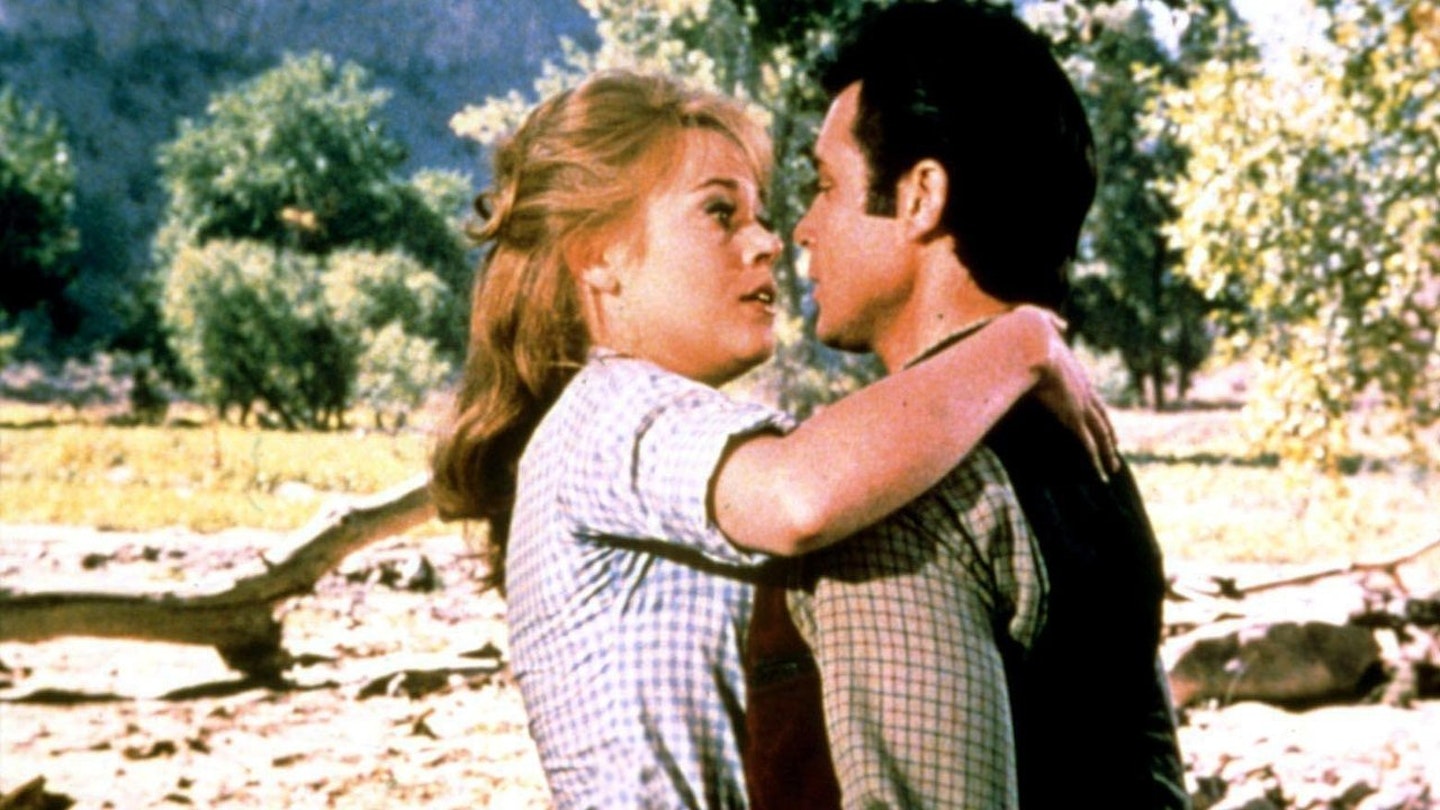Prising open the pomp and gravity of the Western tradition, this whacky, often hilarious comedy is testament to the fact most things have been done before. It’s like a prelude to all the schoolboy antics of the Farrelly brothers and the silly spoofing of the Zucker team. And, actually, it also remains a delightful if limited piece of genre spinning in its very own right. Mainly because Lee Marvin, in two separate roles (one with a tin nose) concocts an Oscar winning roustabout, a booze-ankled has-been who hasn’t exactly gone to seed rather than passed out on the way.
A young, flirty Jane Fonda, back when she played everything with a perky gusto, a squeak or two from being irritating, but spirited and gorgeous enough to get away with it, is the damsel in distress required to figure it out for herself. Her father has been murdered, her outlaw friends the very definition of useless, let alone this blotto gunman wobbling about the place. This is the central joke, that as the badguys close in, at some point he will awaken from his stupor and save the day. He’s just taking forever to do it.
Marvin thrills in being able to dismantle his rigid, tough guy persona, but he’s too good an actor to simply play straight drunk adding an air of faded glory to Kid Shelleen. He’s a real joke, rather than a spoof, complete with languid horse who has a habit of trotting sideways. But he also gets to play the cold hearted, metal nosed killer Tim Strawn, a stiff representation of the Marvin we know.
The plot, held together by balladeers Nat King Cole and Stubby Kaye playing chorus to events (an idea later stolen by the Farelleys), forces this woeful gang into playing outlaw, robbing the scurrilous railroads, but with their day will come. Before it does there are plenty of wry cracks about Western myth (a washed up Butch Cassidy makes an appearance), a suitably superficial and glossy glow about its variations on the genre’s visual tenets, and about the funniest horse ever put on screen to soak up.
